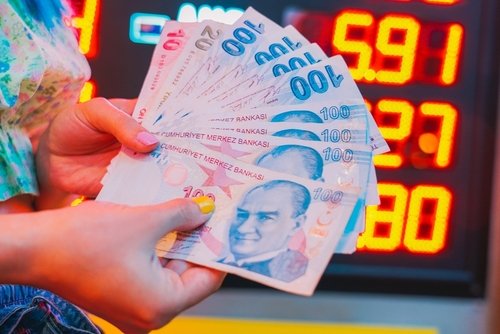Brussels (Brussels Morning) The Turkish lira is still in decline, its annual inflation rate reaching 36.1% in December, its highest level in the last 19 years, since President Recep Erdoğan took office, Reuters reported on Monday.
Consumer prices increased 13.58% in December alone, according to data released by the Turkish Statistical Institute on Monday, further increasing pressure on the country’s citizens.
The lira dropped 44% last year because of the Turkish Central Bank (CBRT)’s expansive policies as Erdoğan prioritised exports and loans over the stability of prices and the exchange rate.
According to the US Goldman Sachs financial group, inflation in Turkey will remain above 40% for the better part of this year. Some economists even predict it could reach 50% by the spring if Turkey does not change its monetary policies.
While the annual rate of consumer price growth in Turkey last year was the highest in nearly 20 years, on Monday, President Erdoğan pointed out that exports had increased by about 33% and had reached 225 billion US dollars in 2021.
He noted that exports had risen six-fold during his time in office before going on to emphasise that “we have only one concern: exports, exports and exports.”
Also on Monday, the CBRT called on exporters to sell 25% of their foreign currency revenues for lira, stressing that the move is aimed at filling depleted foreign currency reserves and strengthening the Turkish lira.
Under its new leadership appointed by Erdoğan last year, the CBRT cut the policy rate from 19% to 14% over the last five months or so, making real yields deeply negative.
Bread lines in Istanbul
Local authorities in Istanbul provided citizens with subsidised bread last month to cushion the blow of soaring prices.
At 18.4, the lira had reached a record low exchange rate against the dollar in December, but it recovered strongly about two weeks ago, when the state intervened and Erdoğan announced plans to protect deposits in domestic currency.
The exchange rate against the dollar stood at 13.22 on Monday afternoon, after the lira dropped approximately 5% and then rose some 3%.
Soaring inflation driven by Erdoğan’s policies could hurt him ahead of the next election that is due no later than mid-2023.




